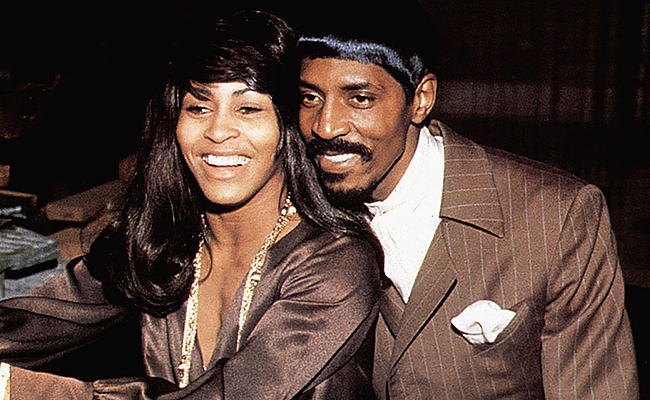
In April 2007, while riding back from the park with my mom and her boyfriend, we turned the radio to the blues station, and a fun little song immediately came on. “I’m a bad, bad boy / but Jesus loves me anyway,” the opening line went. It was cool; we turned it up and jammed. As the song was ending, I found myself wondering, “Who is this, anyway?” I’d soon have my answer, as the DJ told us it was a recent song by Ike Turner.
Oh crap. Was it possible for me to undo the last few minutes of musical enjoyment?
So, why did I feel so conflicted about enjoying a song from a man who is admittedly one of the most well-accomplished musicians of the blues and rock ‘n roll era? Well, there are two obvious answers:
A. He has a long, well-documented history of abusing women.
B. In this particular song, he seemed to be saying that no matter how much of an abusive monster he was, Jesus would still forgive him.
That second factor was probably what really turned me off the song. It’s one thing to enjoy a jokey little song about moving past your mistakes, it was another to hear a well-chronicled abuser seemingly brush off his own terrible past in a such a glib manner as Yeah, but Jesus loves me! Okay, so that particular Ike Turner track was out, but what about the rest of his recorded output? This is a man with decades worth of classic songs, one of which, “Rocket 88,” was arguably the foundation for what became rock ‘n roll.
You could make a decent case that shunning Ike Turner’s music because of the horrible things he’s done is a good thing; that humanity is more important than art, and that celebrating the music of a notorious abuser is simply an immoral thing to do no matter how great that music is. There could be some truth to all of that, but what’s interesting is that we usually don’t do this. We are well aware that John Lennon, Axl Rose, Miles Davis, James Brown, Dr. Dre and countless others have histories of horrifically abusive behavior, and we continue to celebrate their art. With Ike, that’s not really the case. We can acknowledge that, sure, he wrote some great songs, but listening to them in public makes us feel extremely uncomfortable.
Why might that be? It could be because, at this point, Ike Turner might actually be more famous for his abuse than his music. We know everything Tina had to endure during their lengthy marriage. We know it from her songs, and perhaps most pressingly, we know it from the 1993 film What’s Love Got to Do with It, in which Laurence Fishburne portrayed Turner as every bit the horrible abuser that he was. In the past, we might have known the stories about Ike, but that film showed us exactly what he was like. Naturally, it’s kind of hard to just casually go back to enjoying his music after that.
This is particularly noteworthy when we consider the controversy over Straight Outta Compton, the NWA biopic released last summer. The film was largely praised by critics, but it was also criticized for one rather sizable oversight, not portraying Dr. Dre’s abuse of women, particularly, his 1990 attack on journalist Dee Barnes. Barnes penned an op-ed for Gawker explaining why she wished that incident had been depicted – or at least discussed – in the film. It’s obviously a valid complaint, and eventually Dre would address the matter, expressing regret for the “horrible mistakes” he had made in the past. How much sympathy/forgiveness you want to afford Dr. Dre for this is in the eye of the beholder, but one thing that’s certain: He had a lot more control over his story than Ike Turner did. Dre helped to make a movie that whitewashed the worst aspects of his life, while Turner had a movie made about him that focused on just how awful a person he could be.
In case this sounds sympathetic to Turner, to be clear, he absolutely deserved what he got in that movie, and to have his behavior exposed. It just seems worth noting that a lot of other famous abusers were a lot more fortunate than he was. Straight Outta Compton isn’t the only example of this. The 2014 James Brown biopic Get On Up never depicted his history of domestic violence, rather simply focusing on what a dynamic performer he was. Likewise, documentaries like The U.S. vs. John Lennon solely view the former Beatle as a counter-cultural icon just trying to create peace on Earth while ignoring his abusive past.
So many – admittedly great – artists have their worst qualities swept under the rug while their ability to create art is stressed endlessly. Ike Turner is the rare case in which we’re able to ignore what a great performer someone was, and focus more on the truly horrific acts they committed. Ultimately, it’s probably a good thing we view Ike Turner this way, but it would be a lot better if we applied this attitude a bit more consistently.






